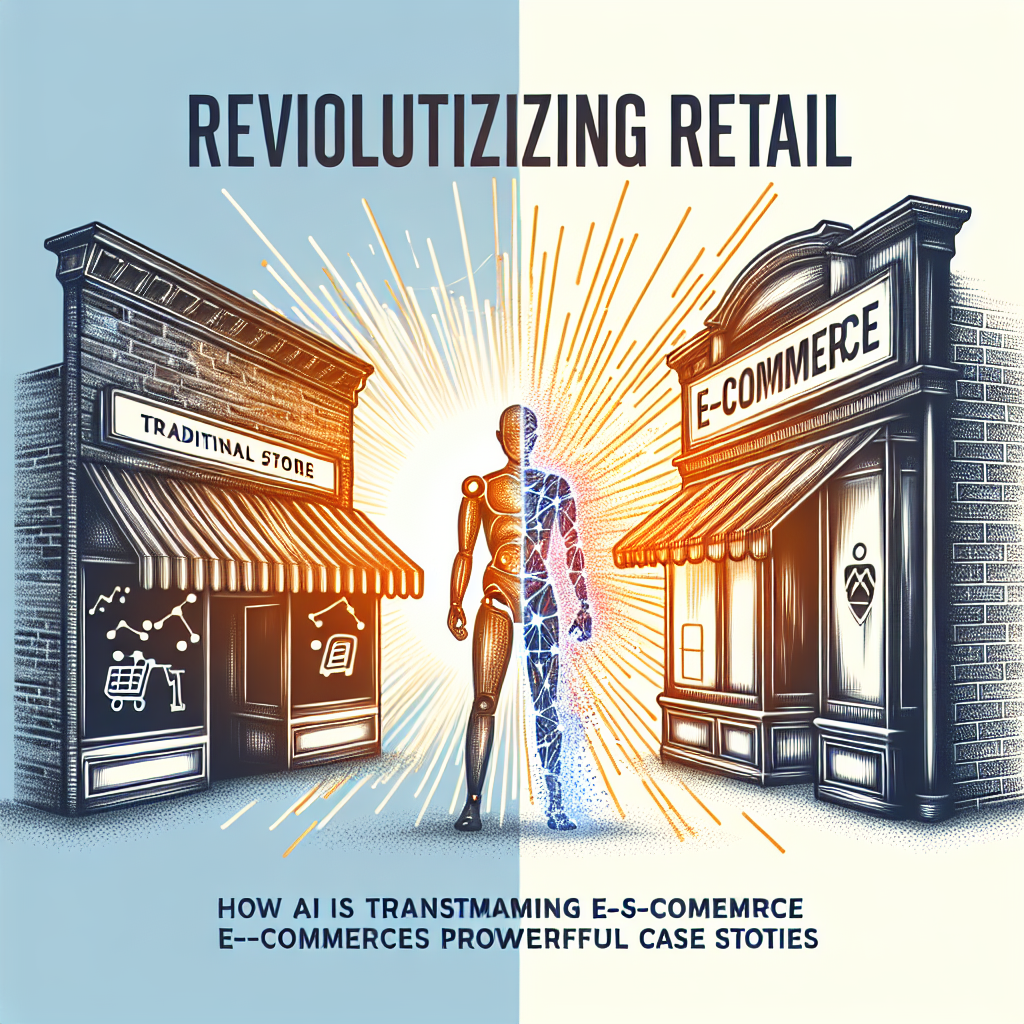25th October 2024
[ ]
]
In the fast-paced world of e-commerce, Artificial Intelligence (AI) has emerged as a technological front-runner, transforming traditional retail paradigms into highly personalized, efficient, and customer-centric experiences. The impact of AI on e-commerce is not just evolutionary; it’s revolutionary. The following powerful case studies illustrate just how profoundly AI is reshaping the retail landscape.
### **1. Personalization at Scale: Amazon’s AI Recommendations**
Perhaps the most recognized example of AI in e-commerce is Amazon’s recommendation engine. Machine learning algorithms analyze a vast array of data points: past purchases, product searches, and even how long you linger on a particular item. This data fuels predictive models that not only understand current consumer preferences but can also forecast future buying behaviors. Consequently, Amazon reports that 35% of its revenues are generated through its recommendation engine. This demonstrates a powerful application of AI’s capability to personalize at an unprecedented scale, making shopping experiences more relevant for each customer.
### **2. Enhancing Customer Interactions: Sephora’s Virtual Artist**
Sephora’s Virtual Artist app uses augmented reality and AI to revolutionize the way customers try on makeup. Users can virtually try different shades of makeup using their mobile device’s camera, which acts as a mirror. The AI assesses the user’s facial features and skin tone, providing personalized recommendations and enhancing user engagement. This virtual solution not only improves customer satisfaction but also reduces returned products due to mismatches.
### **3. Optimizing Inventory Management: Walmart’s AI-Powered Forecasting**
Walmart has taken significant strides in implementing AI technologies to enhance its supply chain and inventory management. By employing machine learning, Walmart analyzes patterns in sales data, weather forecasts, and local events to predict stock requirements more accurately. Such precision in forecasting helps in reducing overstocking costs and, simultaneously, prevents stockouts, ensuring a smooth retail experience for consumers and optimizing operational efficiency.
### **4. AI in Customer Support: H&M’s Chatbot Assistance**
In an industry where customer service can make or break sales, H&M leverages AI-powered chatbots to offer round-the-clock customer support. These chatbots handle a flurry of routine inquiries about order tracking, product availability, and sizing issues, freeing up human agents to manage more complex queries. Here, AI not only enhances efficiency but also improves customer experience through immediate responsiveness.
### **5. Dynamic Pricing Strategies: Dynamic Yield by McDonald’s**
Although not traditional e-commerce, McDonald’s acquisition of Dynamic Yield, a leader in AI for retail, showcases AI’s role in dynamic pricing strategies. McDonald’s uses this technology to adjust digital drive-thru menus based on time of day, weather, current restaurant traffic, and trending menu items. Such dynamic pricing not only boosts sales but also improves customer satisfaction by highlighting items that customers are more likely to purchase at specific times.
### **Conclusion: AI as Future of E-commerce**
These case studies only scratch the surface of AI’s potential in revolutionizing e-commerce. By improving personalization, enhancing user interaction, optimizing operational inefficiencies, revolutionizing customer support, and enabling dynamic pricing, AI technologies promise to transform traditional retail experiences profoundly. As businesses continue to harness the power of AI, the future of retail looks more intuitive, efficient, and customer-oriented than ever before. The implication is clear: in the competitive retail market, AI integration isn’t just an option; it’s a necessity for those looking to thrive in the digital era.